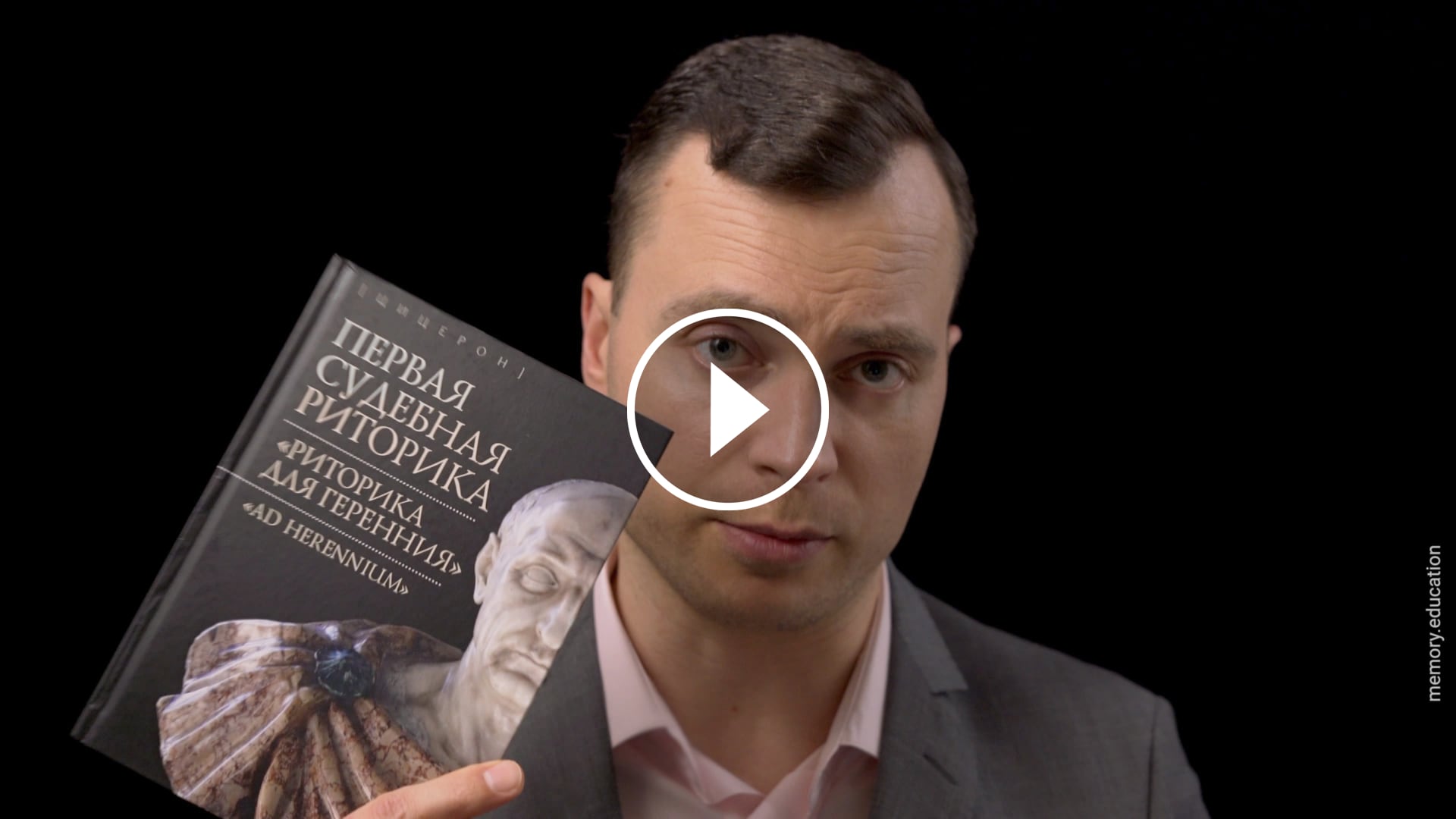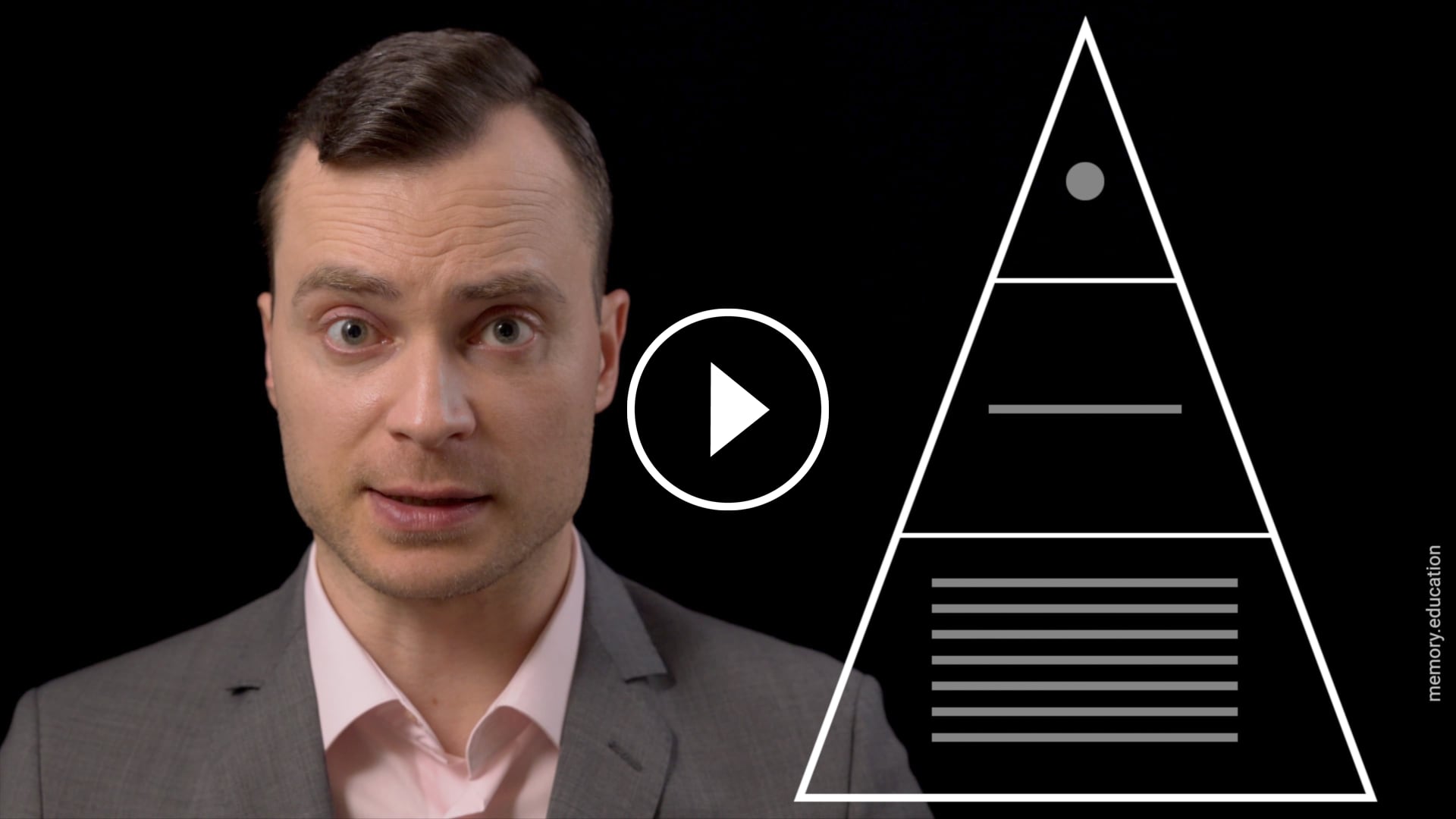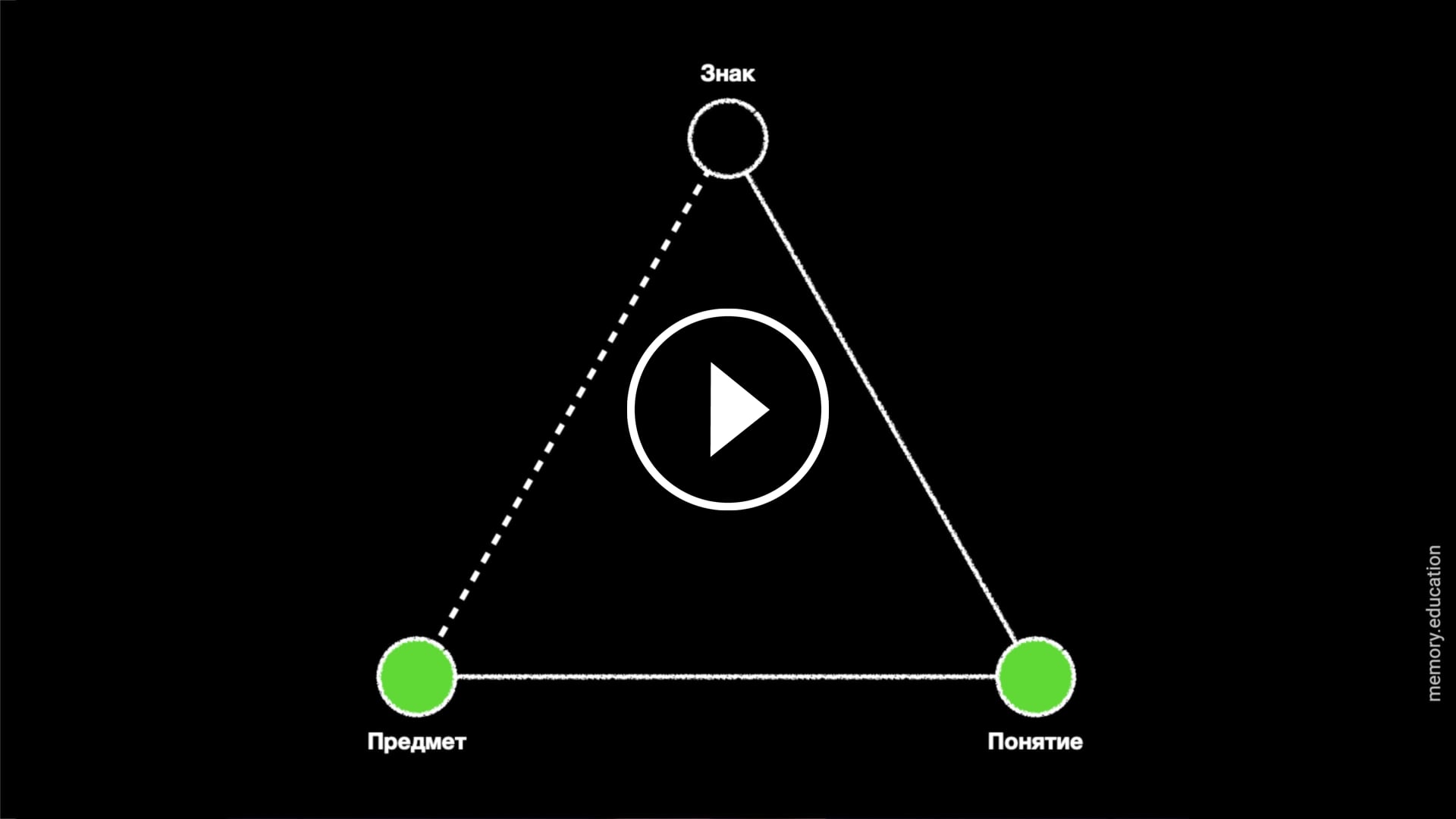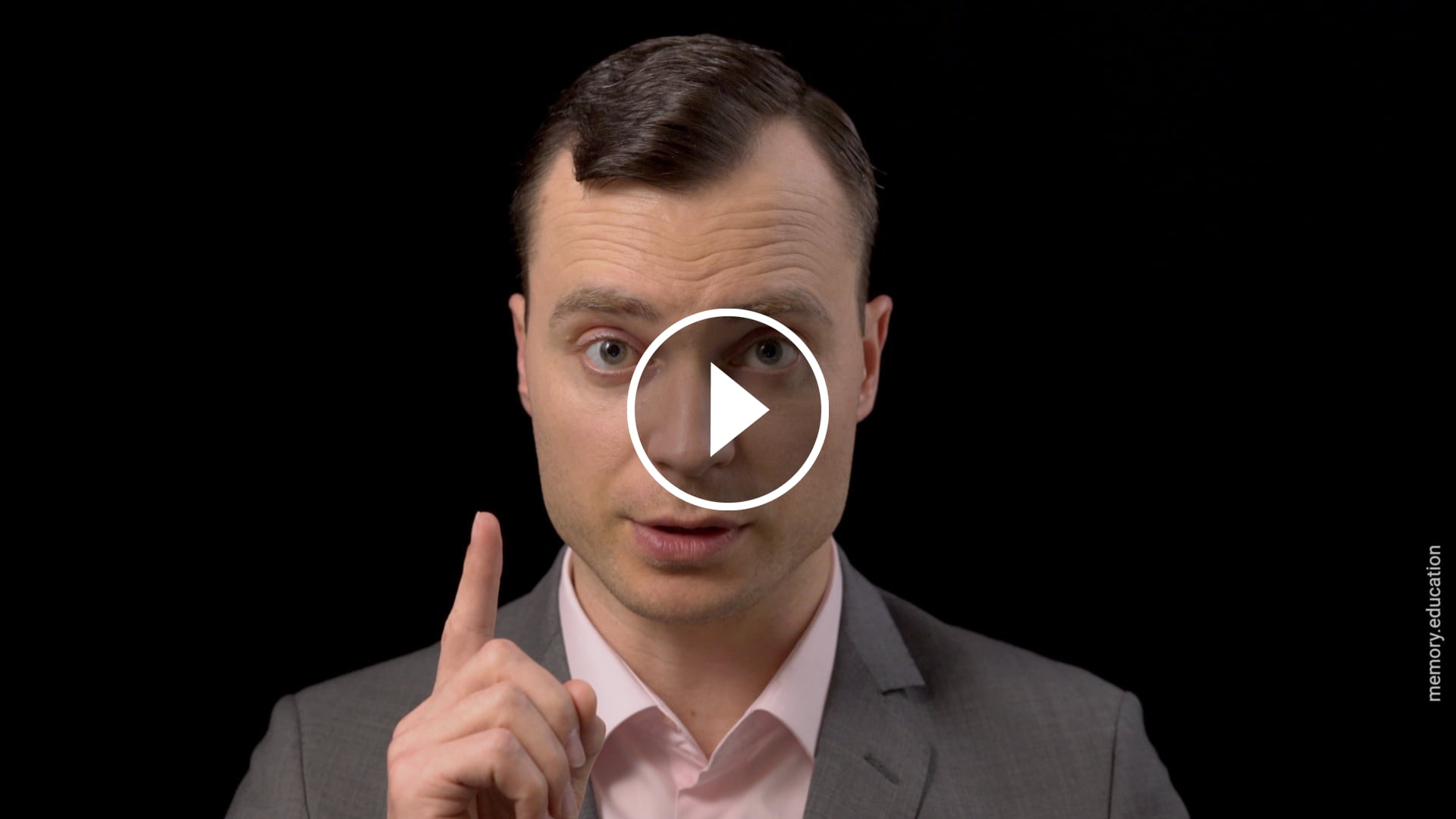The Secret Knowledge of the Ancient Greeks: How to Memorize Complex Information
Free course of 5 video lessons and additional materials. In this memory course, people are introduced to mnemonics and from the second lesson onwards do phenomenal things
Why not in English yet?
Initially, I made this memory course at the request of the Kyiv State Administration in Ukraine.
I speak Russian there so that the memory course could be taken not only by Ukrainians.
Historically, everyone in the former Soviet Union understands Russian. In addition to Ukraine, Belarus, and Russia, there are also the Baltics (Estonia, Latvia, and Lithuania), the Caucasus (Armenia, Azerbaijan, and Georgia), and Central Asia (Kazakhstan, Kyrgyzstan, Tajikistan, Turkmenistan, and Uzbekistan).
If I spoke Ukrainian, only Ukrainians would understand me. But I want to help as many people as possible. I want everyone to be able to memorize the information they need in their studies, work, or personal life. So I had to speak in Russian.
I planned to make a memory course in English. I didn’t want to make dubbing of the videos that are already ready. Although that would have been the easiest thing to do—I wouldn’t have had to do complicated video production again.
But personally, I don’t like watching dubbed lessons. When the mouth says one thing and the voice says another. So I decided to re-record the course in English from the beginning.
But on February 24, Putin’s Russia attacked Ukraine. They are razing peaceful cities to the ground and destroying Ukrainians. In Kyiv, I hear a siren several times a day, missiles periodically hitting houses. It’s impossible to record a course in such conditions. All I can do now is conduct memory training online.
Hopefully, the war will be over in my country in a few months. And if I stay alive, I will certainly record a memory course in English. This course is really worth the wait.
If you don’t want to wait, come straight to the full training
I suggest you save this page to your bookmarks. Better yet, click on the green button at the top and leave your e-mail so we can let you know when the English version of the memory course is ready.
In the meantime, we are posting the previous version here. Let those who don’t know English improve their lives with this free memory course, too.
Memory trainer

Lesson 1: Introduction
- how this memory course will help you learn better, cope with your work, and stand out from those who use Google instead of memory;
- about the natural limitations of our memory, before which everyone is equal: both those who think they have a good memory and those who are used to complaining about their memory;
- the first limitation of memory: we cannot memorize abstract information such as numbers, factual information, terms, definitions, abstract words, names, abbreviations, letter combinations, syllables, foreign words, etc. (examples of phenomenal memory of famous personalities of the past confirm that they used mnemonics);
- the second limitation of memory: we are bad at memorizing a sequence of information, such as to-do lists, meeting lists, main thoughts, theses of the speeches, and the main points of the books;
- how people throughout history have tried to bypass the limitations of memory and why most of these attempts are ineffective;
- history of the emergence of mnemonics as a tool to help memorize any information with absolute precision;
- basic principles of memorization with which you can write down information in your head just as you would write it in a notebook or computer.
The Magical Number Seven, Plus or Minus Two. It is often interpreted to argue that the number of objects an average human can hold in short-term memory is 7 ± 2. This has occasionally been referred to as Miller’s law
Alexander the Great remembered the 30,000 soldiers of his army by sight and name. He was brought up from the age of 13 by the ancient Greek philosopher Aristotle, author of the treatise “On Memory and Reminiscence”. And mnemonics for the ancient Greeks is like arithmetic and the rules of writing for us. Cyrus, Caesar, Napoleon—many used mnemonics
A mnemonic device, or memory device, is any learning technique that aids information retention or retrieval (remembering) in the human memory for better understanding

Lesson 2: How to memorize information in the right order
- memorizing sequential information, whatever it may be: from the simplest shopping list to the sequence of cases, meetings, talking points, and book highlights;
- a phenomenal level of mastery of the information you have memorized: you will read information from your head in forward and backward order, selectively, by keyword or question, in alphabetical order, or by a sequential number.

Lesson 3: Secrets of memorizing text
- principles of memorizing text: three levels of text (information block, paragraph, facts), three floors of the text pyramid (the text, the semantic anchor point, the image), text collapsing and expanding, memorization algorithm (from the paragraph to the information block);
- mnemonics as encoder and decoder: how to convert information into a memorable form;
- homework: what you need to do after the memory course to understand texts more deeply than 99% of other people (mnemonics is not just about memorizing, it’s also about understanding).
Of course, one video lesson does not substitute for a full two-day training on memorizing textual information. But even this one lesson will help you tremendously

Lesson 4: How to memorize foreign words correctly
- the thought-forming function of language: language is not just for speaking;
- the triangle of understanding: which three of its vertices should always be controlled when you learn foreign words;
- disastrous mistakes in learning foreign vocabulary: this sins almost every video on YouTube, which promises to teach you to memorize foreign words (knowing these mistakes will save you a time of life and a lot of money);
- what memory trainers don’t tell you when they promise to teach you to memorize “100‑300 foreign words an hour.”

Lesson 5: Conclusion with further recommendations
- two exercises for reading information fluently from your head: instead of painfully recalling and decoding information, you will be able to reproduce it as easily as you would from a book;
- how to make your visual thinking tenacious: speaking in front of an audience you will be able to answer questions, track the audience’s reactions, smile, and charm everyone, but you will keep in your mind where you left off so you can go back in your head and continue your narrative;
- how to manage the retention time of information in your head: you will decide for yourself how long to remember, from short-term to lifelong storage in your memory;
- the main ideas of the memory course and recommendations for your further development.
There are, then, two kinds of memory: one natural, and the other the product of art. The natural memory is that memory which is imbedded in our minds, born simultaneously with thought. The artificial memory is that memory which is strengthened by a kind of training and system of discipline. But just as in everything else the merit of natural excellence often rivals acquired learning, and art, in its turn, reinforces and develops the natural advantages, so does it happen in this instance
written in 86-82 BCE

How to study a memory course
You will be able to use your memorization skills as soon as you finish this memory course. But in order for you to get the most out of it, there are some guidelines to consider.
- Watch on a display of sufficient size. In our videos we will simulate the workings of your imagination, simulating what should be going on in your head.
This specificity imposes limitations: video lessons are useless to watch on a small smartphone screen. Even on a tablet isn’t as good. The best way to watch them is on a laptop display or desktop monitor.
- Leave an e-mail where we can send additional materials. If you leave your e-mail in the form below, we will be able to send you the text materials (when the English version of the course is ready).
There will be a methodology guide for this memory course. If you want to run through the main points of the course, you won’t have to search through all the videos of the course. Just flip through the text material and refresh your memory.
- Don’t interrupt while doing a particular exercise. Video lessons are unlikely to be just “watched” or “listened to” like lectures.
You won’t be able to “just watch” in-between, in transportation, or over a meal like you watch an entertaining video on YouTube.
You have to set aside time and create the most comfortable conditions for studying. So that no one distracts you, your phone doesn’t ring, so you don’t have to interrupt unexpectedly.
Imagine that you came to the gym. And the fitness trainer told you to do a certain number of reps in one approach. But you did one or two push-ups or sit-ups and then you talked on the phone. Then you did a couple more push-ups or sit-ups and then talked to your buddy again. Yes, you might end up getting the right number of reps. But you won’t get the results you need. Because this number of reps should have been done in one approach.
So it is in this memory course: until you finish a particular exercise, you can’t interrupt.
- Rest before the lesson. Try to study rested, sleepy, and full of energy. We will be developing intellectual skills, so your head should be fresh.
Try to leave personal and work problems for a time before or after class. I need you to memorize, not think about some bastard setting you up at work.
“Wait for the English version of the course. It really is worth the wait. However, if you do not want to wait, come straight to the full training”
